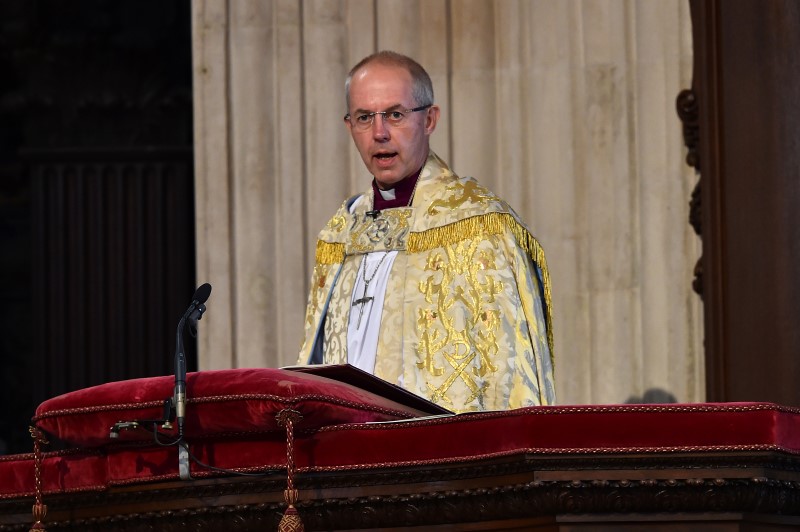LONDON (Reuters) - The spiritual leader of the Church of England said he would vote in favour of Britain remaining in the European Union, hailing the bloc as a force for peace and reconciliation on Sunday.
Evoking the union's founders' vision of healing the continent in the years after World War Two, Archbishop of Canterbury Justin Welby said the choice facing Britons in the June 23 referendum should be made with the same ambition and idealism.
"The EU came together in a Europe broken beyond description by war, and has shaped a continent which until recently has contributed to more human flourishing, and more social care, than at any time in European history," Welby wrote in a Mail on Sunday newspaper article.
A British exit from the EU, or "Brexit", would have far-reaching consequences for politics, the economy, trade, defence and migration in Britain and across the continent.
Opinion polls are giving conflicting clues as to which side is ahead, but the overall picture suggests the race is tight with many voters still undecided.
"We are going to make a choice that will change the lives of all of us, and the next generations, both for this country and indirectly for much of Europe," wrote Welby, adding that Britain's vision for its future "cannot be only about ourselves".
The archbishop, the most senior cleric in the world's 85 million-strong Anglican communion, said he did not wish to tell others how to vote and had no divine hotline to the right answer.
"But for my part, based on what I have said and on what I have experienced, I shall vote to remain," he said.
Welby also said that whatever the result, Britons should come together after referendum day to heal the divisions caused by the campaign, which has split the ruling Conservative Party and wider society.
"The language in the campaign has been very blunt, but this is the question of a generation, and merits passionate campaigning," he said.

"After the referendum we must come together as one people to make the solution we choose work well. Hard words ... must not create enduring bitterness."